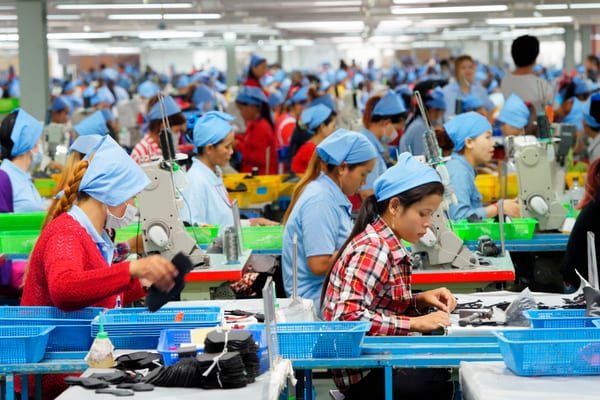The Dhaka Principles for Migration with Dignity
18 December 2012

Marking International Migrants Day 2012, the Institute for Human Rights and Business has launched the Dhaka Principles for Migration with Dignity. These provide an accessible and authoritative central reference point for responsible business in relation to workers. They are based on international human rights and labour standards - notably relevant ILO conventions and the UN Guiding Principles on Business and Human Rights.
The Dhaka Principles provide practical guidance for employers, labour brokers and other stakeholders following the migrant worker from home to place of employment through to the end of contract.
Employment of migrant workers is commonplace in global supply chains and services across many industries, from apparel to agriculture, construction to hospitality. Despite their immense economic contribution, migrant workers, whether internal or international, frequently lack adequate legal protection and are vulnerable to exploitation and discrimination by recruiters and employers. No inter-governmental mechanism exists to ensure cross-border protection and access to redress is almost always lacking.
The recent tragedy of workers in a burning garment factory in Bangladesh apparently locked in and unable to escape highlights the urgency of worker protection in the workplace . However, exploitation can begin well before the worker begins his or her job. Unregulated recruitment processes in home countries often give rise to debt bondage, and forced labour and trafficking in the formal sector remain a significant problem.
As IHRB Executive Director John Morrison emphasizes:
“All businesses have a responsibility to respect the human rights of migrant workers throughout their operations. The Dhaka Principles offer a clear framework for companies to undertake effective due diligence and ensure migration with dignity. It’s all part of responsible business and good risk management.”
The Dhaka Principles have been developed over the past two years in consultation with a range of stakeholders including the International Trade Union Confederation, the ILO, global companies including recruitment agencies, grassroots and international NGOs and a number of governments. First discussed at an important migrant worker roundtable with business, civil society and governments in Dhaka, Bangladesh in 2011, the Dhaka Principles seek to inform policies in practices in sending and receiving countries around the world.




